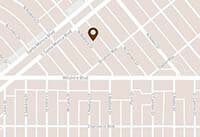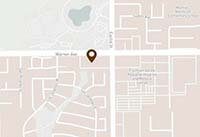To Buy Cellcept Online Visit Our Pharmacy ↓
 How Cellcept Works: a Deep Dive
How Cellcept Works: a Deep Dive
Overview of Cellcept and Its Uses
Cellcept, a widely prescribed immunosuppressive medication, is primarily used to prevent organ rejection in transplant patients by inhibiting the body's immune response. Composed of mycophenolate mofetil, it acts by blocking a key enzyme needed for the growth of certain lymphocytes, thereby preventing the immune system from attacking the transplanted organ. With its significant role, Cellcept has become a go-to in the Rx world for maintaining transplant efficacy.
Given its potent effects, Cellcept is also utilized in treating autoimmune conditions where the immune system mistakenly targets the body's tissues. Despite its benefits, ongoing Med Rec is crucial to monitor its impact and manage potential side effects for optimal patient safety.
```html
| Condition | Common Uses | Dosage Form |
|---|---|---|
| Organ Transplant | Prevents rejection | Tablet, Capsule |
| Autoimmune Diseases | Reduces immune response | Elixir, IV |
Mechanism of Action: How Cellcept Works

Cellcept, known generically as mycophenolate mofetil, is a compound medication that effectively curbs the immune system's aggressiveness by inhibiting a crucial enzyme needed for DNA synthesis in T and B lymphocytes. When your body perceives a new organ as foreign, these aggressive cells become overactive, potentially rejecting the transplant. By dialing this response down, Cellcept ensures the body's acceptance of newly transplanted organs without severe immunosuppression.
As Cellcept courses through your system, it orchestrates a fine balance, reducing the activity of immune cells without completely undoing the body's defense mechanisms. This careful modulation is akin to using a pharmacological elixir, precisely fine-tuned to maintain harmony within the body's immune landscape. Given the severe consequences of organ rejection, Cellcept's role is akin to an emergency 'stat' measure, vital for transplant recipients.
The Role of Mycophenolate Mofetil in Immunosuppression
Cellcept, containing mycophenolate mofetil, is a powerful immunosuppressant often used in transplant medicine. By inhibiting the proliferation of T and B lymphocytes, Cellcept effectively dampens the immune system's response. This mechanism is crucial in preventing the body from rejecting transplanted organs, as these immune cells would otherwise attack the foreign tissue. The drug's ability to "count and pour" specific immune pathways gives it a unique edge in maintaining organ viability.
In addition to its role in transplant medicine, Cellcept is utilized to manage severe autoimmune diseases. Conditions such as lupus nephritis and rheumatoid arthritis benefit from its immunosuppressive "comp" action. By limiting autoreactive immune cells, the drug helps in reducing inflammation and tissue damage.
While Cellcept is invaluable, it comes with considerations. The drug must be prescribed and monitored carefully due to potential side effects, including increased susceptibility to infections. With guidance from a "White Coat" professional, patients can navigate the balance between effective immunosuppression and safety, making Cellcept a critical component in modern immunotherapy.
Common Conditions Treated with Cellcept

Cellcept (mycophenolate mofetil) is widely prescribed to manage and treat autoimmune conditions and prevent organ transplant rejection. For transplant patients, Cellcept is an essential part of the post-transplant medication regimen, working in tandem with other drugs to keep the body from attacking the new organ. Additionally, it’s commonly used to treat various autoimmune diseases, such as lupus nephritis and rheumatoid arthritis, by dampening the immune system’s activity.
Patients receiving a Script for Cellcept should follow their Sig closely to optimize its benefits. This drug, often part of a larger Cocktail of medications, can also help in controlling inflammatory bowel diseases like Crohn's disease and ulcerative colitis.
Potential Side Effects and Safety Considerations
Patients using Cellcept should be aware of potential side effects, which can range from mild to severe. Common issues include gastrointestinal discomfort, infections, and blood-related conditions like anemia. It’s crucial to follow the sig—your prescription directions—carefully and consult your healthcare provider for any unusual symptoms. In rare cases, severe side effects may require immediate ("stat") medical attention. Regular monitoring and Meds Check sessions help mitigate these risks, ensuring that any "red flag" issues are caught early and managed appropriately.
| Side Effect | Frequency |
|---|---|
| Gastrointestinal Discomfort | Common |
| Infections | Common |
| Anemia | Less Common |
| Severe Allergic Reactions | Rare |
Adverse effects could also occur due to drug interactions. It is essential to avoid 'Pharm Parties,' where people trade prescriptions, as this misuse can escalate risks. The 'fridge drugs' context implies that drugs needing refrigeration like some immunosuppressants must be stored correctly to maintain efficacy. Staying informed and proactive about potential risks goes a long way in ensuring Cellcept's safe use.
Recent Advances and Future Directions in Cellcept Research
Recent studies have highlighted the potential of Cellcept to be combined with other medications, creating effective cocktails for more personalized treatments. Researchers are delving into its molecular interactions and optimizing dosing regimens to reduce side effects. Intriguingly, advancements in pharmacogenomics and precision medicine are paving the way for tailored scripts. This progress shows promise for improving patient outcomes, especially for those undergoing organ transplants.
In line with these findings, future research is focusing on the extended applications of Cellcept, exploring new conditions beyond its current use. Pharmacists are also investigating novel dosage forms, perhaps even some elixirs, to enhance absorption and patient adherence. Moreover, ongoing clinical trials aim to refine guidelines for its application, making it a staple in the realm of immunosuppressive therapies.





